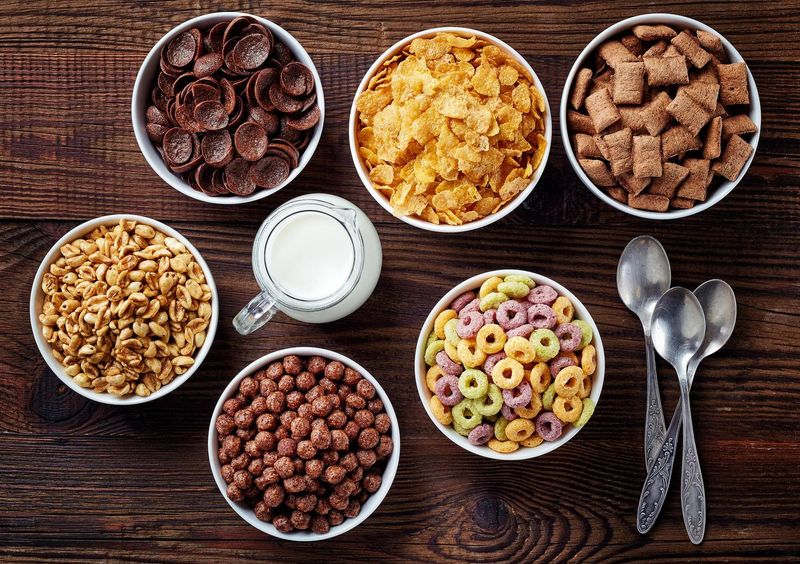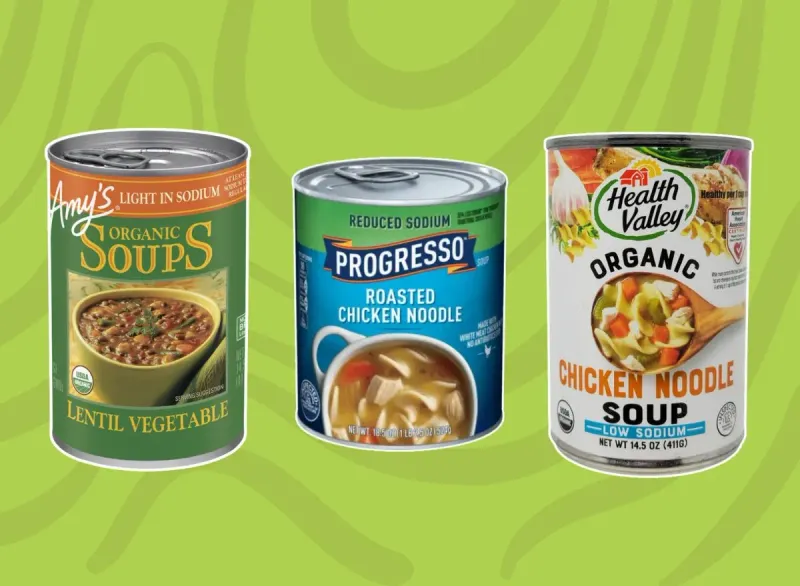10 Foods Seniors Should Avoid For Better Health

As we age, our nutritional needs change, and certain foods that were once staples in our diet may no longer be beneficial. Here, we explore ten foods that seniors should avoid to maintain optimal health and well-being. From high-sodium processed meats to refined carbohydrates, each item on this list can have a unique impact on the aging body. By understanding these effects, seniors can make informed dietary choices that support longevity and quality of life.
1. High-Sodium Processed Meats

The allure of convenience in processed meats such as bacon, sausage, and deli cuts often masks their high sodium content. This can be a hidden culprit for seniors, leading to elevated blood pressure and additional strain on the kidneys and heart. Picture a breakfast plate loaded with bacon and sausage. While it may seem appetizing, the sodium lurking within could spell trouble for an older adult’s cardiovascular health. Limiting these meats in one’s diet can be a proactive step towards maintaining a healthier blood pressure and reducing the risk of heart-related complications.
2. Sugary Breakfast Cereals

Brightly colored and often marketed as “heart-healthy,” sugary breakfast cereals can be deceptively unhealthy for seniors. These cereals, despite their appeal, can disrupt blood sugar levels, potentially leading to type 2 diabetes. Imagine pouring a bowl of these cereals on a rushed morning, only to face the inevitable sugar crash later. The enticing taste might not be worth the risk of metabolic disorders. Opting for cereals with whole grains and low sugar content can offer a more balanced start to the day, promoting stable energy levels and better overall health.
3. Fried Foods

Fried foods, with their crispy allure, often contain unhealthy trans fats. These can contribute to heart disease and high cholesterol in seniors. Envision a basket of golden-brown fried chicken or fries. While the taste might be irresistible, the impact on cardiovascular health can be significant. Trans fats can increase inflammation and are tough on the digestive system of older adults. Choosing baked or grilled alternatives can mitigate these risks, providing flavorful options without compromising heart health and digestion.
4. Canned Soups with High Sodium

The convenience of canned soups often conceals their high sodium levels, which can pose a risk to seniors. A single bowl might contain more than half a day’s worth of salt, leading to fluid retention and blood pressure spikes. Imagine reaching for a warm, comforting bowl of soup on a cold day, unaware of the stealthy sodium within. This can be especially challenging for those managing hypertension. Opting for low-sodium versions or homemade soups with fresh ingredients can offer comfort without the health consequences.
5. Artificial Sweeteners

Artificial sweeteners, often found in diet foods and drinks, can unpredictably affect seniors’ digestion and appetite. Picture a cup of coffee sweetened with these substitutes, promising a guilt-free indulgence. However, the reality might include digestive issues like bloating. These sweeteners can also alter cravings, leading to unexpected weight changes. Exploring natural sweeteners like honey or maple syrup, in moderation, can offer a tastier and gentler alternative for sweetening foods and drinks, aligning better with a senior’s dietary needs.
6. Raw Sprouts (Like Alfalfa)

Raw sprouts, such as alfalfa, while nutritious, carry a higher risk of bacterial contamination, posing a danger to seniors with weaker immune systems. Envision a fresh, vibrant salad topped with these sprouts, seemingly the epitome of health. However, the risk of salmonella or E. coli can overshadow the benefits for older adults. Cooking sprouts can reduce these risks, making them a safer addition to meals without compromising their nutritional advantages. This mindful choice helps protect against foodborne illnesses while embracing healthful eating.
7. Hard-to-Chew Cuts of Meat

Tough meats, such as certain steaks or overcooked roasts, can pose challenges for seniors with dental issues. Imagine struggling with a knife and fork, facing chewiness that turns a meal into a chore. Beyond just being tough to chew, these cuts can be hard to digest and may lead to choking hazards. Selecting tender cuts or opting for ground meats can ease dining experiences, ensuring meals remain enjoyable and safe. With the right preparation, seniors can savor meats without concern, focusing on flavor and nutrition instead.
8. Unpasteurized Dairy or Juices

Unpasteurized products, like certain dairy and juices, can harbor harmful bacteria, increasing the risk of foodborne illnesses in seniors. Picture a glass of fresh, unpasteurized juice, tempting in its natural state, yet potentially hazardous for older adults. The recovery from such illnesses can be tougher for seniors. Choosing pasteurized versions ensures safety without sacrificing nutritional value, allowing seniors to enjoy their favorite beverages and dairy products with peace of mind. This simple switch can significantly enhance dietary safety.
9. Alcohol (in Excess)

While moderate alcohol consumption can be part of a healthy lifestyle, excessive intake poses risks for seniors. A glass of wine at dinner might seem harmless, yet it can interact with medications and increase fall risks. Alcohol’s impact on liver health is another consideration for aging bodies. Moderation, or even abstinence, is wise for many seniors, allowing them to enjoy social settings without compromising their health. Consulting with healthcare providers can help tailor recommendations, ensuring alcohol consumption aligns with personal health goals.
10. White Bread and Refined Carbs

White bread and other refined carbs, such as pastries and processed pasta, offer little nutritional value. A sandwich made with fluffy white bread might be a nostalgic choice, yet it can cause rapid spikes in blood sugar. This can be particularly concerning for seniors managing diabetes or seeking sustained energy. Whole grains provide a better alternative, offering fiber and nutrients that support digestive health and stabilize blood sugar levels. By choosing whole grain options, seniors can enjoy satisfying meals without the sugar rollercoaster.
